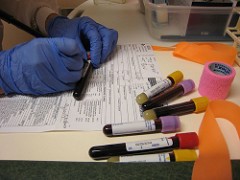

What to expect in an Ohio paternity case depends on who you are. The mother and purported father will enter into the process for different reasons and go through different experiences. An adult child between the ages of 18 and 23 can also become a litigant.
Speaking with a Columbus, Ohio, family law attorney before requesting or submitting to a paternity test will help you understand exactly what you will need to do. The lawyer you consult could also be hired to protect your rights and represent your interests when the case proceeds to a hearing before a judge. Here, the paternity attorneys with Edward F. Whipps & Associates will just outline the reasons a woman, man, or older child might initiate a paternity case and what Ohio law requires.
Mothers and Paternity Cases
Reason to Prove Paternity
A woman needs to legally establish that a man is the father of her son or daughter in order to collect child support.
Ways to Prove Paternity as a Mother
Ohio courts and state agencies rely on sworn affidavits and the results of DNA tests to recognize paternity. The affidavit comes in the form of a signed “brown form” issued and recorded by the Ohio Department of Jobs and Family Services. When both the mother and the purported father sign it under oath, legal paternity exists. DNA testing, conducted by swabbing saliva or drawing blood from the child and the purported father, becomes necessary when no signed brown form is on file.
A mother can secure a court order to compel a man to submit to a DNA test regardless of where he lives. A positive result itself does not make the man the father in the eyes of the state until a family court judge affirms the finding. The necessity to go to trial is a strong reason to hire a Columbus, Ohio, paternity attorney when seeking to prove fatherhood in order to secure or enforce a child support order.
Men and Paternity Cases
Reasons to Prove Paternity
A man may want to establish his paternity in order to
Ways to Prove Paternity as a Man
A man can voluntarily affirm that he is the father of his son or daughter at any time by completing the official paternity form and getting the mother to agree to sign it. If submitting DNA evidence becomes necessary, the man can use any laboratory of his choice or arrange for a test at his local child support enforcement agency. Results can take anywhere from one day to several weeks to arrive. Again, a positive DNA test must be accepted by a family law judge to constitute legal proof of paternity.
Ways to Contest Paternity
Ohio courts make it possible, but difficult, for s man to disprove paternity after he has submitted a signed brown form. A negative DNA test is required, and a judge must be convinced that the affidavit was submitted fraudulently, in confusion, under duress, or for reasons that put the man at a disadvantage.
During a court hearing to consider DNA test results, a man can challenge the accuracy of the finding, the qualifications of the technicians who performed the test, and the quality of the testing equipment and procedures used. Another type of challenge involves arguing that the samples tested were not labeled, handled, and stored correctly.
If a man wins a paternity challenge, he is relieved of all legal duties to pay child support. He will not be entitled to request repayment of any monetary support he provided up to the date of the judge’s ruling.
Adult Children and Paternity Cases
Reasons to Prove Paternity
Ohio allows a child, mother, or father to ask a family court judge to compel a paternity test up until the day that the child turns 23 years old. Establishing paternity after the age of 18 will not obligate a man to pay child support, but it may make the child eligible for benefits like Social Security disability and pension payments through his or her biological father. Issues of inheritance can also turn on legal paternity.
If you find yourself involved in a paternity case in any way, the family law attorneys with Edward F. Whipps & Associates may be able to help.
Call us at (614) 461-4006 to request a consultation or schedule an appointment online.
July 28, 2014
Edward F. Whipps & Associates is excited to announce that on August 1, 2014, we will have a new and…
READ MORE >>